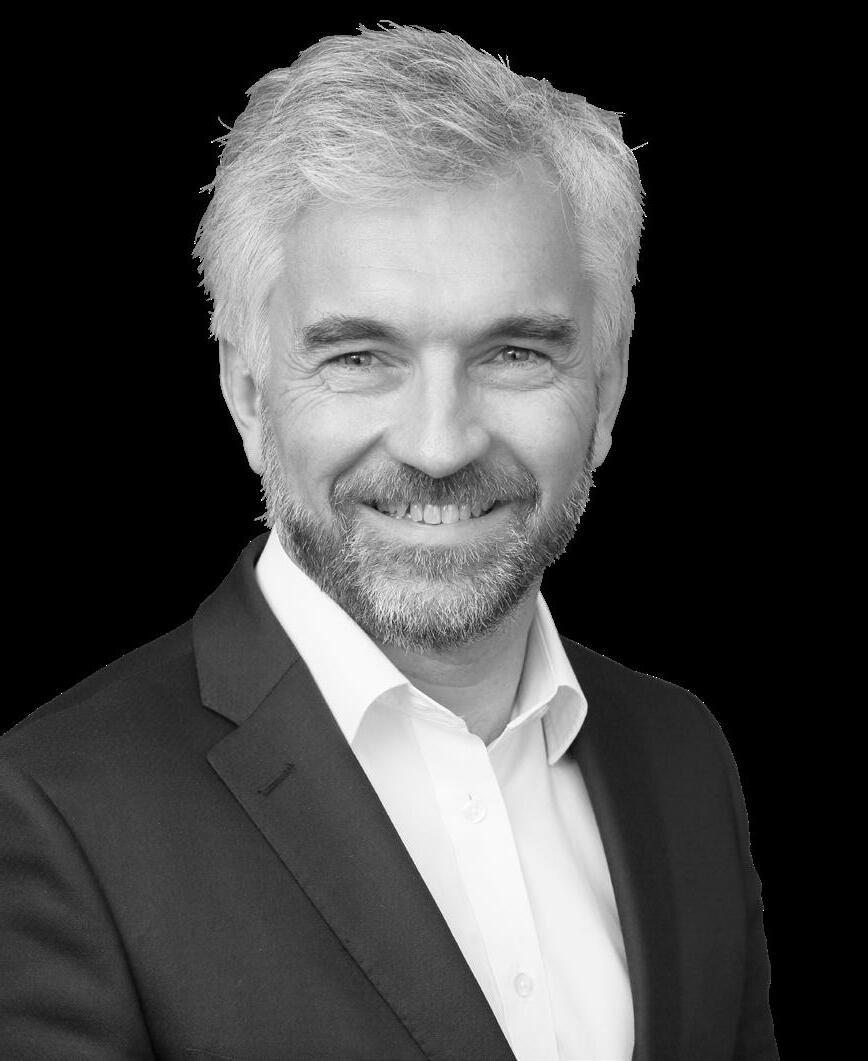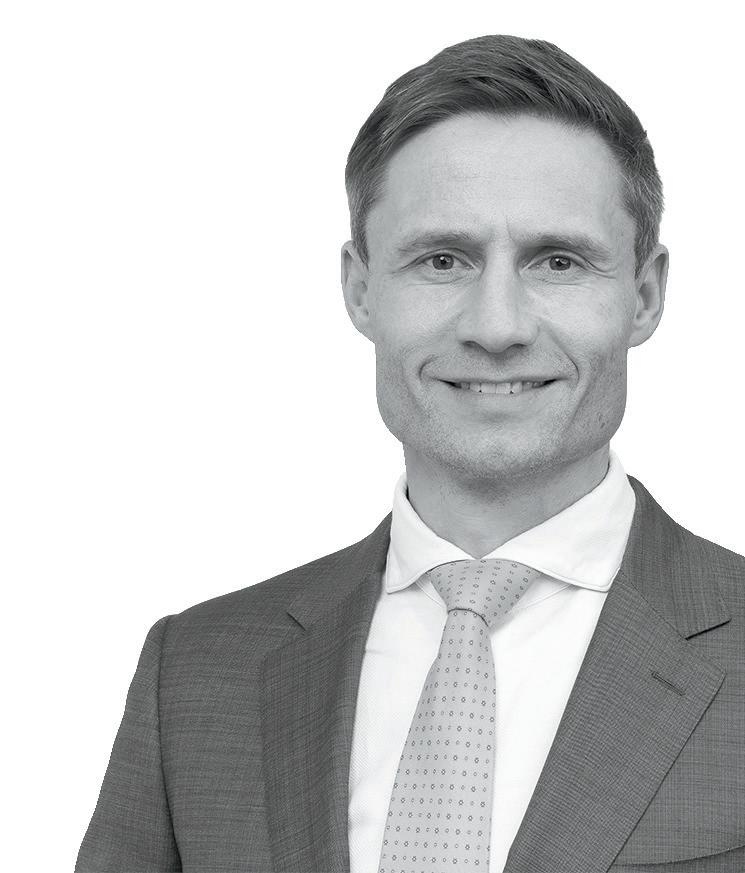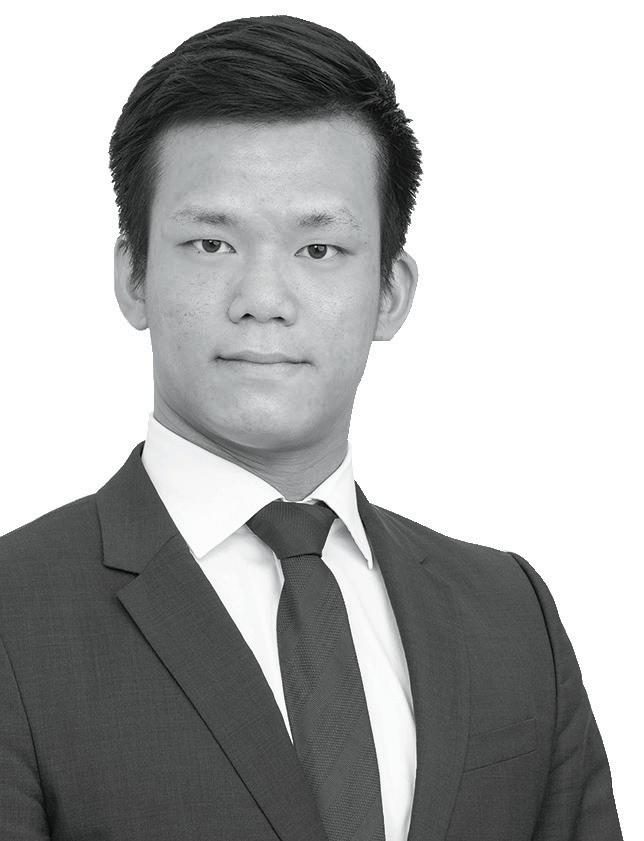LUXEMBOURG IN FOCUS



Luxembourg’s alternative investment fund sector has grown significantly, with fund numbers rising from 4,568 in 2018 to 6,932 in 2021.

More specifically, the private debt and real estate segments have experienced upticks in light of growing investor appetite for these assets, driven by the current market turbulence and uncertain environment.
The assets under management in Luxembourg’s private debt sector rose to €267.8 billion, according to data from the annual KPMG Private Debt Fund Survey which is supported by the Association of the Luxembourg Fund Industry. This represents a 45.4% uptick compared to last year.
According to Alfi, the survey shows that private debt asset managers are improving decision-making through data analytics and artificial intelligence, making processes more cost efficient. In addition, tokenisation of investment vehicles and underlying portfolios have started to emerge.
Given the increased complexity involved in private debt transactions, coupled with investor and regulator requirements for more transparency, the way industry players share data is coming under the lens.

The focus on transparency is further highlighted by the regulator’s enforcement campaign in this regard. The CSSF announced its 2023 transparency enforcement campaign will home in on topics such as climate-related matters, the Ukraine invasion, the macroeconomic environment and compliance with article 8 of the Taxonomy Regulation.
This makes disclosures and reporting all the more important as industry participants seek to ensure they are compliant.

The alternative investment industry is developing new ways of sharing data across the whole value chain – from portfolio companies and holdings to funds and investors – and from asset servicers to asset managers and asset owners. Luxembourg, as a fund domicile, has been building its niche of expertise in this space and evolving to better serve the whole eco-system as the appeal of particular asset classes continues to grow.
“In Luxembourg, this development relates to the strong focus on private markets,” comments Bruno Bagnouls, Head of Sales & Relationship Management, Europe, Alter Domus. “Initially more specialized in real estate, the jurisdiction has been able to grow significantly and progressively in both private equity and private debt. One of the key elements in this progress has been the solutions to capture, process and report financial data. Fund managers and investors want access to data related to their funds quicker, and with more granularity, not necessarily when it’s released at quarter end. They need detailed information at their disposal.”
This is particularly relevant for those managers who outsource their back or middle office functions and rely on third party partners to provide this data.
“Having a platform which allows managers to access data and allows them to potentially build their own customized reports is very powerful. Whether that data is financial information for a single SPV, or performance indicators of the investment activity of a fund, for example,” notes Bagnouls.
This access can be considered to mitigate certain risks in terms of the potential lack of quality information. Having this data available means managers can not only build bespoke reports, but the information can also help drive faster decision making and support communications with investors.
“Some industry commentators have pointed out the more manual nature of the administration of private markets funds, compared to classic equity and bond markets. But through these data solutions, the industry is growing to meet the needs of our clients and their investors,” says Bagnouls.
In order to ensure these new ways of sharing data are as effective as they can be, managers should work closely with their service providers to identify the most appropriate operating model. This involves having the right due diligence processes in place, alongside an outsourcing policy tailored to their needs. Bagnouls also advises managers to not appoint too many service providers: “This way you can clearly cope and manage those relationships while you define a long or mid-term partnership with those providers.” Reducing the number of providers a firm works with could enhance some aspects of risk. However, in contrast, the relationship between the manager and that single provider is also more likely to develop as a partnership.
The appeal of private markets in Luxembourg mirrors the global trend seen in the space as the market has been growing in terms of transaction volumes and allocations. As the industry witnessed continued fund launches in the infrastructure, private debt and private equity arena,
Bagnouls points to the greater complexity these asset classes represent.
“There has been a strong tendency to outsource certain back-office functions in particular, and also progressively more middle office functions. Asset managers want to focus on attracting investors, launching more specific strategies, deploying capital and making sure they have the right return on investment,” he says, “As a result, a number of back office or middle office functions tend to be outsourced more, providing asset managers with the right level of control and oversight.”
In this respect, Luxembourg is well-placed to provide these services. The jurisdiction is home to a number of flexible fund vehicles, suitable for these asset classes, as a well as a rich eco-system which has been built up over the last two decades. During this time, the Grand Duchy laid down roots for future developments.
“Luxembourg has been able to develop an expertise in real estate, for example. And the infrastructure sector is growing very well as a result. We keep seeing interest in this area both from new and existing managers,” Bagnouls explains.
The industry has also seen progressive use of the flexible fund solutions Luxembourg offers, in particular the reserved alternative investment fund, or RAIF. The growth in this area has enabled the flexibility to continue developing as managers use these structures for varied purposes.
The domicile has also been a leader in Europe within the sustainable finance sphere, with service providers adapting to handle specific strategies in the space such as micro finance and forestry funds. In Bagnouls’s view, this is a niche
which is clearly growing through partnerships between government agencies and private players.
Challenges to these green ambitions mainly revolve around talent. Attracting high calibre experts to Luxembourg remains a critical priority and a need that is unrelenting. “We need more expertise in specific asset classes, beyond the standard real assets or private market type strategies, in areas like microfinance and certain emerging markets,” Bagnouls says. Attracting and retaining skilled professionals in an environment where activity is growing at a fast pace will always be a hurdle for the industry.
Education, coupled with agility, is a vital cog in overcoming this issue and Bagnouls believes Luxembourg has the ability to provide this: “That’s the power of Luxembourg; the collaborative approach between the different structures, industry and governmental bodies and services is unique. When you set up a firm, or administer a fund in Luxembourg, we [the industry] are able to cope, adapt and build an endto-end offering for clients.”
He also points to the macro-economic environment which is affecting the Luxembourg industry and the broader finance industry as a whole: “We could clearly have an impact, by way of a slowdown, in terms of transactions within the real estate market, although I wouldn’t say we expect a hard stop in terms of activity. In contrast, though, in the realm of private debt, the current interest rate environment creates opportunities for new funds and new investments.”
Bruno Bagnouls is Head of Sales & Relationship Management, Europe, and Group Head of Sales Operations at Alter Domus. Based in Luxembourg, Bruno is responsible for the management and growth of the firm’s business development efforts, as well as the development and implementation of new products, and innovation to existing products and services.

With the increasing popularity of alternative investments, in particular in the areas of private equity, private debt and real estate, we have witnessed that there is more demand in realising such investments via Luxembourg alternative investment fund structures (the “AIFs”) by international eligible investors. In the EU, AIFs were introduced by the Alternative Investment Fund Manager Directive (Directive 2011/61/EU, the “AIFM Directive”), which regulates managers of funds other than those under the Undertakings for Collective Investments in Transferable Securities Directive (Directive 2009/65/EC).
The purpose of this article is to introduce the particular points to be examined during the legal due diligence for investing in a Luxembourg AIF structure.

Under Luxembourg law, an AIF may be regulated or unregulated and may be set up either in a contractual form (fonds commun de placement) or a corporate form (limited liability company or limited partnership etc.). Given the various options to structure a Luxembourg AIF, the incorporation and existence of the AIF shall be carefully examined as first step of the legal due diligence.
collective investment subject to Part II of the Luxembourg law of 17 December 2010 (UCI Part II funds), specialised investment funds under the Luxembourg law of 13 February 2007 (SIFs) and investments company in risk capital société d’investissement en capital à risque under the Luxembourg law of 15 June 2004 (SICARs).
In case the AIF qualifies as a reserved alternative investment fund under the Luxembourg law of 23 July 2016 (RAIFs), upon incorporation it shall be registered with the RAIF list as maintained and published by the RCSL.
We are more than simply the biggest independent fund service platform in the German speaking region: Benefit from more than 50 years‘ experience in launching white label funds, more than 1000 employees and more than 750 billion euros of assets under administration. We are your expert partner for all fund services. Whether your success story has only just begun or whether you have successfully completed the first chapters - we set the stage to make sure that you and your funds stand out from the competition.

manco-services.universal-investment.com | + 49 69 71043-190
As to the constitutive documents of the AIF, depending on its legal form, the investors shall review the deed of incorporation (which includes the articles of association), the limited partnership agreement or the management regulation of the AIF as applicable. As to the public registration, the AIF shall always be registered with the Luxembourg Trade and Commerce Register (the “RCSL”) upon its incorporation. Such registration process could take up to approximately one month after the incorporation, during which period the information of the AIF will not be published or accessible on the RCSL but the AIF is already capable of entering into legal documents. In case the AIF is subject to direct regulation of the Luxembourg financial sector regulator Commission de Surveillance du Secteur (the “CSSF”), upon the CSSF’s approval it shall be registered with the official list of the CSSF and published on the CSSF’s website. This applies to e.g. undertakings for
Certain ypes of Luxembourg AIFs may be structured as an umbrella structure with the possibility to create multiple sub-funds (also known as “compartments”) within the same structure, such as UCI Part II funds, SIFs, SICARs and RAIFs. In general, assets and liabilities of a sub-fund are segregated from those of other sub-funds of the same AIF. Hence it is utmost important to identify whether the investment is made to a single AIF or rather one of the sub-funds of an AIF.
The AIF shall appoint an AIFM in accordance with the Luxembourg law of 12 July 2013 (the “AIFM Law”), except that such requirement is exempted under certain circumstances. The AIFM carries out, among others, the discretionary portfolio management function of the AIF, if not yet delegated to
another discretionary investment manager. During the legal due diligence in respect of the AIFM, it is crucial to clarify the identity of the AIFM, in particular whether the AIFM is (i) an affiliate to the initiator of the AIF or (ii) a third-party service provider engaged by the initiator.



In case of scenario (i), the priority should be usually to clarify whether the AIFM is authorised by the CSSF or registered with the CSSF. The former is subject to the complete authorisation process of the CSSF and its direct regulation while the latter only requires a simplified registration with the CSSF and is exempted from most of the legal requirements that are applicable to an authorised AIFM as provided by the law.
Scenario (ii) are usually preferred by the initiators not having sufficient substance in the EU. In such case, the legal due diligence should rather focus on how the AIF’s internal investment procedures is structured to ensure that the key persons of the initiator may direct the investment activities sufficiently. It is commonly seen that such third-party AIFM would delegate the portfolio management function to a nonEU discretionary investment manager controlled by the initiator and maintain the other functions, e.g. risk management and marketing.
In addition to the AIFM, other service providers engaged by the Luxembourg AIF shall be duly verified as well, in particular its depositary bank and transfer and registrar agent as applicable, as these concern respectively the safekeeping of the assets or onboarding and drawdown procedures. The fund documents of the AIF shall describe in a transparent manner the identities of and the functions to be assumed by the respective service providers.
Article 21 of the AIFM Law transposing article 23 of the AIFM Directive provides for the obligations to disclose certain information to investors of an AIF, which enable them to obtain more visibility on the essential terms of the AIF, e.g. the investment strategy and objectives of the AIF, usage of leverage, fees, charges and expenses and the maximum amounts thereof etc.
The market practice to fulfil these disclosure obligations is to present the required information in constitutive documents or issuing documents but it is also common for investors to receive a separate statement presenting such information from the AIF. In the latter case, investors would need to pay extra attention to the information that is not disclosed in the constitutive document or issuing document of the AIF.
Other aspects of the Luxembourg AIF than those listed out above usually also apply to the legal due diligence of an AIF in other jurisdictions, as the Luxembourg structures are flexible enough to implement common practices in the investment funds industry. The following extra aspects shall be considered for the legal due diligence in most cases:
- Terms and periods of the AIF, e.g. overall term of the AIF, final closing date and investment period;
- Open-ended or closed-ended AIF and if open-ended, the redemption policy;
- Mechanisms of re-investment, return of distribution, clawback of carried interest;
- Distribution waterfall; and
- Amendment procedures of fund documents.
Many leading international asset managers, lenders and asset owners choose Alter Domus as their partner for growth. Whether a stand-alone fund with limited investments, or a large multi-billion-dollar fund with complex investment streams across multiple jurisdictions, we understand your world.
Vertical integration allows us to build dedicated teams to provide support and bespoke solutions across your entire value chain. By tapping into a talent pool of more than 4,100 employees across 37 offices in 21 countries, our expertise and cutting-edge technology combine to put you ahead of the game.
With an established professional focus on private equity, real assets and debt capital markets sectors, we offer fund administration, corporate services, depositary services, capital administration, transfer pricing, domiciliation and management company services. Our specific experience in the debt capital markets sector allows us to provide specialist solutions such as loan administration, agency services, trade settlement and CLO manager services.
For further information see: www.alterdomus.com
GSK Stockmann is a leading independent European corporate law firm with over 250 professionals across our offices in Germany, Luxembourg and the UK.
GSK Stockmann is the law firm of choice for Real Estate and Financial Services. In addition, we have deeprooted expertise in key sectors including Funds, Capital Markets, Public, Mobility, Energy and Healthcare. For international transactions and projects, we work together with selected reputable law firms abroad. Our advice combines an economic focus with entrepreneurial foresight. That is what is behind: Your perspective.
In Luxembourg, GSK Stockmann is the trusted adviser of leading financial institutions, asset managers, private equity houses, insurance companies, corporates and FinTech companies, with both, a local and international reach. Our lawyers advice domestic and international clients in relation to Banking & Finance, Capital Markets, Corporate/M&A and Private Equity, Investment Funds, Real Estate, Regulatory and Insurance as well as Tax.
More about us: www.gsk-lux.com
The Universal Investment Group is one of Europe’s leading fund service platforms and Super ManCos, with around EUR 768 billion in assets under administration, more than 2,000 mutual and special fund mandates and a workforce of more than 1,100 at locations in Frankfurt am Main, Luxembourg, Dublin and Krakow. Founded in 1968, the company is an independent platform for asset managers as well as institutional investors offering structuring and administration solutions as well as risk management for Securities, Real Estate and Alternative Investments. The companies UI Labs, UI Enlyte and CAPinside complement the group’s innovative service offering. Universal Investment is a signatory of the UN Principles of Responsible Investment. (as of 31 October 2022)
For further information see: www.universal-investment.com